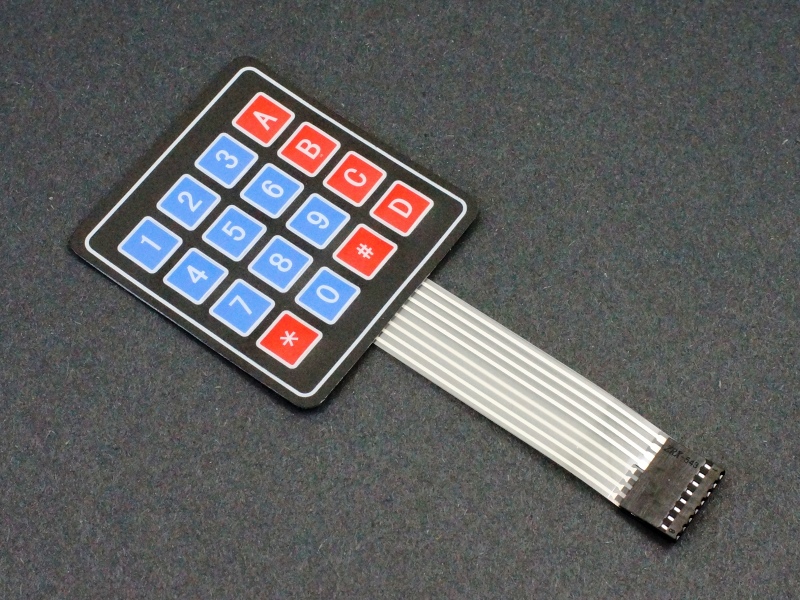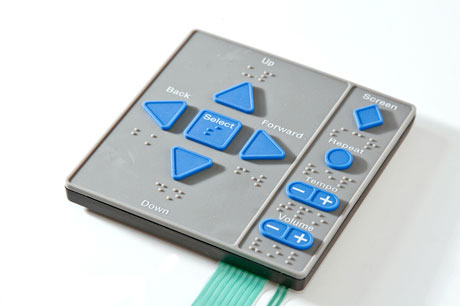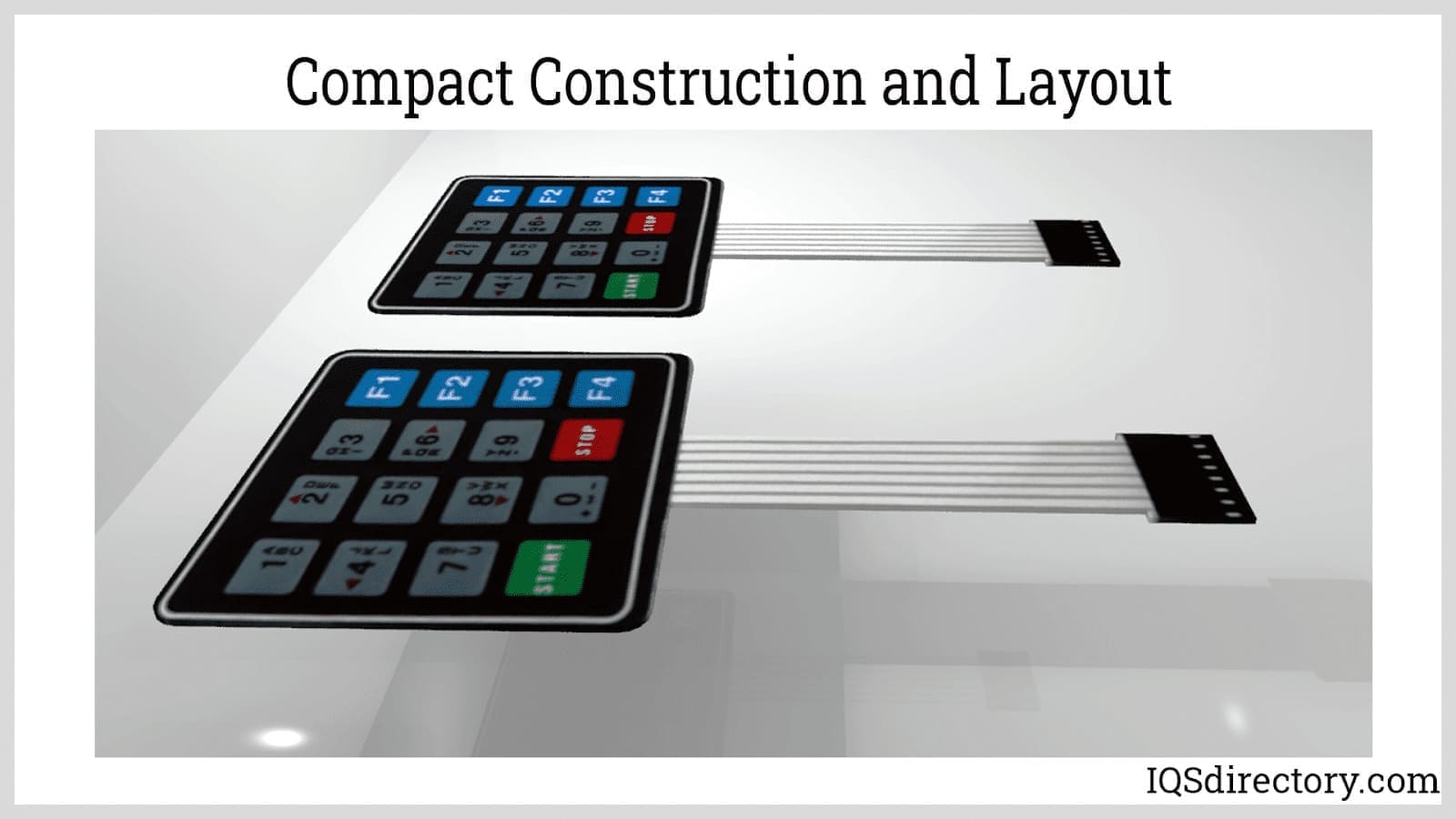Recognizing the Significance of Membrane Switches in Interface
Membrane buttons are integral elements in the design of efficient customer interfaces, helping with not just performance but likewise boosting visual allure and individual communication. As we discover the various advantages and future trends linked with Membrane modern technology, it ends up being clear that these buttons are a lot more than simply elements; they represent a merging of technology and functionality.
What Are Membrane Switches?

The spacer layer, which consists of adhesive residential properties, enables the splitting up of the circuit layer from the overlay, making sure that the button continues to be in a non-activated state till pushed. When pressure is put on the overlay, it compresses the spacer layer, connecting the space and finishing the circuit in the underlying layer. This style not only minimizes the physical space required for traditional mechanical switches yet likewise enhances the sturdiness of the gadget, as Membrane buttons are generally resistant to dirt, wetness, and other environmental variables.
Generally found in applications varying from consumer electronics to medical devices, Membrane switches are important to modern-day technology, offering a straightforward and effective user interface that lines up with contemporary layout needs.
Advantages of Membrane Buttons
While countless switch modern technologies exist, Membrane Switches deal distinctive benefits that make them particularly desirable in various applications. Among the key advantages of Membrane switches is their small design, which permits space-saving applications in devices where genuine estate is limited. Their slim account not only enhances aesthetic appeal but additionally assists in lightweight building.
One more significant advantage is their resistance to environmental variables. Membrane buttons are usually secured against dampness, dirt, and impurities, making them suitable for use in demanding environments, such as clinical tools and commercial equipment. This longevity prolongs the life expectancy of the button, decreasing maintenance expenses and enhancing dependability.
In addition, Membrane buttons can be tailored to fulfill particular design demands, incorporating special graphics and shades that improve customer interaction. Their tactile feedback alternatives can also be tailored to give a rewarding customer experience. Furthermore, Membrane buttons are cost-effective, particularly in high-volume applications, as they can be created successfully.
Applications in Different Industries

In the customer electronic devices industry, Membrane buttons are widespread in devices such as microwaves, cleaning machines, and push-button controls. Their tactile comments and aesthetic alternatives enhance customer experience while providing a smooth, modern-day look. In addition, automotive makers utilize Membrane switches in dashboard controls and infotainment systems, where room is limited, and individual engagement is essential.
In addition, the industrial field visit leverages Membrane buttons in control panels for machinery and tools, permitting instinctive operation in often severe settings. Their resistance to chemicals and wetness ensures durability and integrity in these applications. Generally, the versatility of Membrane Switches adds significantly to their prevalent use, making them important in various technological domains.
Style Factors To Consider for Membrane Switches

When creating Membrane buttons, several vital considerations have to be considered to ensure optimal functionality and customer experience. To start with, the choice of materials is important; selecting sturdy, high-quality substrates can improve the button's longevity and resistance to ecological variables such as wetness and temperature level fluctuations.
Secondly, the layout of click here to find out more the visuals overlay need to prioritize quality and simplicity of usage. Symbols and text have to be understandable, and the format should promote intuitive interaction (membrane switches). Additionally, tactile responses is important; incorporating a responsive dome or various other devices can boost the individual experience by supplying physical confirmation of activation
Another important aspect is the button's electric performance. Designers must ensure that the conductive traces are correctly designed to decrease resistance and prevent signal interference. This includes assessing the required actuation pressure and making certain compatibility with the digital parts they will certainly interface with.

Future Trends in Membrane Modern Technology
As technology continues to advancement, Membrane buttons are positioned to advance considerably, driven by developments in products and making strategies. One arising fad is the consolidation of sophisticated products, such as conductive inks and versatile substratums, which improve sturdiness and lower the overall weight of Membrane switches. These products not just improve the responsive reaction yet additionally enable the layout of switches that can endure harsher ecological problems.
Additionally, the combination of touch-sensitive modern technologies is changing typical Membrane Switches right into more interactive user interfaces. Capacitive touch sensing units embedded within Membrane switch panels can supply a much more responsive and user-friendly customer experience, aligning with helpful site the growing demand for smooth, modern designs in customer electronic devices.
Furthermore, advancements in printing techniques, such as electronic and 3D printing, allow fast prototyping and customization of Membrane buttons. This adaptability permits makers to respond faster to market demands and customer choices.
Lastly, sustainability is coming to be a substantial emphasis, with suppliers discovering green products and procedures. As these trends unravel, the future of Membrane innovation promises improved performance, visual appeal, and ecological duty, strengthening their duty in sophisticated customer interfaces throughout numerous markets.
Verdict
In final thought, Membrane Switches represent a crucial element in the style of user interfaces, integrating performance with aesthetic flexibility. As innovations in innovation proceed, the development of Membrane buttons is anticipated to additional fine-tune user interfaces, driving innovation and boosting functionality in an increasingly complex technical landscape.
Membrane buttons are integral components in the style of efficient customer interfaces, helping with not just capability yet also enhancing visual charm and individual interaction.Membrane Switches serve as a vital element in numerous user interfaces, assisting in a seamless interaction between customers and digital devices.While numerous switch innovations exist, Membrane Switches offer unique advantages that make them particularly desirable in different applications.In addition, Membrane switches can be customized to meet specific layout needs, incorporating special graphics and shades that enhance user communication.In verdict, Membrane Switches stand for an important element in the layout of user interfaces, incorporating performance with visual versatility.